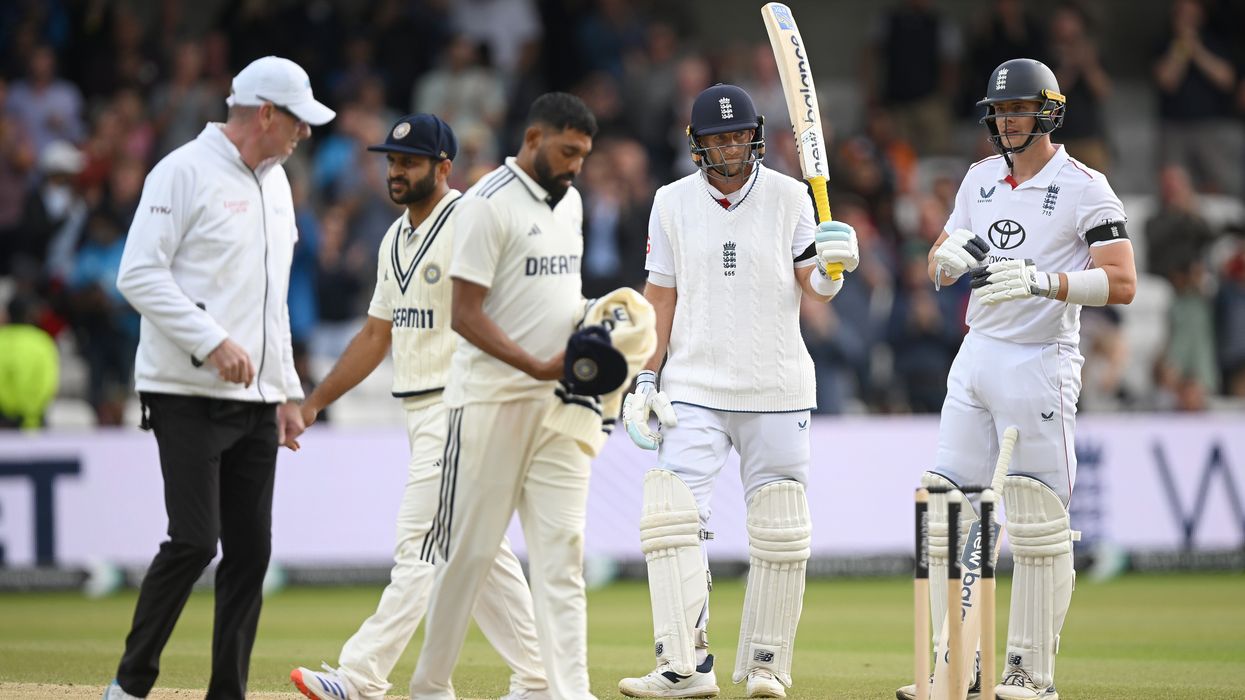BEN DUCKETT’s 149 helped England chase down a record target of 371 to beat India by five wickets in the first Test at Headingley on Tuesday.
England became the first team in over 60,000 first-class matches to concede five individual centuries and still win the game.
They ended the fifth day on 373-5, taking a 1-0 lead in the five-match series.
Starting the final day on 21-0, England needed 350 more runs with overcast skies in Leeds, but Duckett and Zak Crawley (65) put on an opening stand of 188 to shift the momentum.
Smith, Root see England home
Jamie Smith finished unbeaten on 44, hitting the winning runs with a six off Ravindra Jadeja. Joe Root, playing on his home ground, was 53 not out and helped steady the innings after a minor collapse.
India’s lead bowler Jasprit Bumrah, who had taken 5-83 in the first innings, went wicketless in the second.
The win was England’s third-highest successful fourth-innings chase in Tests, all achieved in the last six years.
Headingley win adds to England’s recent record
Tuesday’s chase followed their 378-3 against India at Edgbaston in 2022 and the 362-9 against Australia at Headingley in 2019, when Ben Stokes scored 135 not out.
“We have got some good memories at Headingley over the last few years and this is another to add to it,” Stokes said at the presentation.
“It was an awesome Test to be part of... That partnership between Duckett and Crawley set us up brilliantly. Ducky got the big score but Zak stayed composed and in the moment and his 65 was important.”
India fall short despite centuries
India captain Shubman Gill, who scored a century in the first innings, faced defeat in his first match as Test captain. Rishabh Pant made 134 and 118, becoming only the second wicketkeeper to score hundreds in both innings of a Test.
However, India suffered collapses of 7-41 and 6-31 at the end of each innings.
“We had our moments on top, but England are so good and we needed to kill the game when we had the chance,” Gill told the BBC.
“We still have a young team and a few catches didn’t go our way so that’s where the game slipped away,” the 25-year-old added.
Late wickets not enough for India
The game remained open late into the final session. England were 253-4, still needing 118, when Shardul Thakur dismissed Duckett and Harry Brook in consecutive balls.
Stokes and Root put on a half-century stand before Stokes was out for a reverse-sweep off Jadeja, caught by Gill. Root and Smith then guided England to the target.
Earlier, Prasidh Krishna dismissed Crawley and Ollie Pope (8) in quick succession, leaving England on 206-2.
Crawley edged to KL Rahul at first slip, and Pope was bowled by Krishna.
Duckett’s innings featured aggressive shots including a reverse sweep for six off Jadeja. He was dropped on 97 by Yashasvi Jaiswal off Mohammed Siraj but reached his sixth century in 34 Tests.
His innings ended on 149 when he drove Thakur to short extra cover.
Next ball, Brook was out for a duck, having missed a century in the first innings by one run. However, by then, England were already in control.
(With inputs from agencies)




